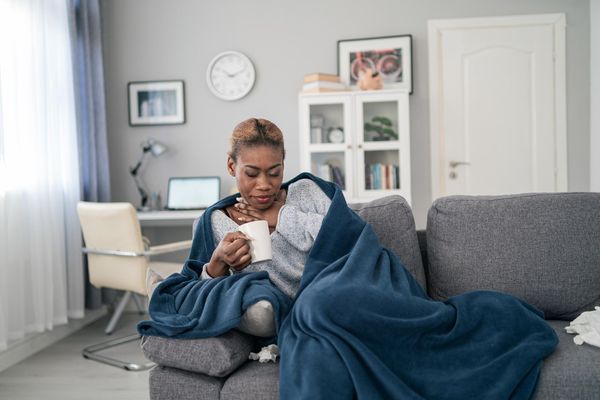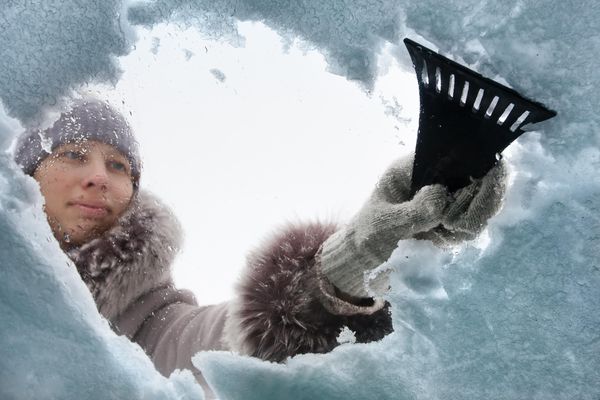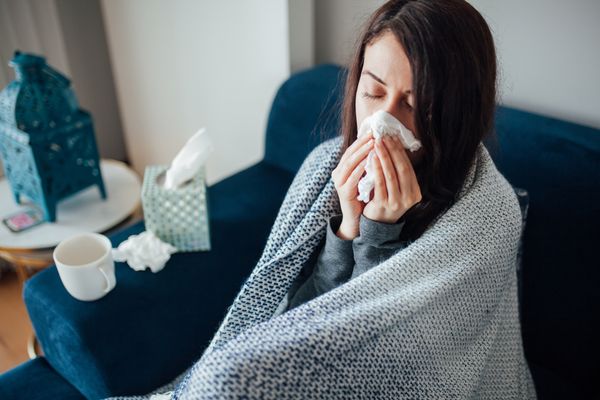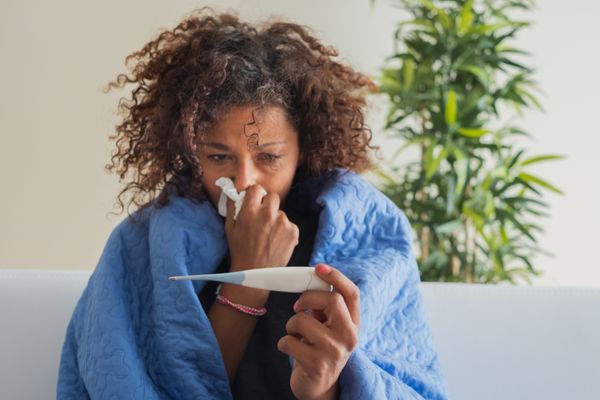Got a cold?
Tis the season.
Every year, especially in the wintertime, the common cold hits millions of Americans—and it's not just a one-time deal. According to estimates from the Centers for Disease Control and Prevention, adults have two or three colds each year. And for children, that number is much higher: between 8 and 12.
That might be why, when my children were younger, I caught so many colds: You catch a cold, most often, from other people. It can be by touch or from droplets that contain the virus lingering in the air after an infected person coughs or sneezes and spreads their germs. All it takes is inhaling that air or touching that person's hand after they've used it to blow their nose in a tissue (or to open a door), and the virus gains an entry into your body.
Read more about: When to Keep Your Child Home From School
Hopefully, you'll make it through the winter with no colds or a minimum of colds. Knowing the cold, hard facts might help you steer clear:
- Colds are caused by viruses, not bacteria. There are more than 200 viruses that can give you a cold—most commonly the rhinovirus. This is why antibiotics are ineffective in treating a cold (unless, of course, you develop a secondary bacterial infection with your cold, like bronchitis, strep throat or pneumonia).
- There's a difference between flu and colds.
- Cold germs can linger on indoor surfaces for more than seven days. How long they survive has to do with the type of surface: generally, nonporous surfaces like stainless steel and plastic will hold onto the germ longer than a porous surface like tissues and fabric. But, the power for that virus to infect someone diminishes quickly, usually within 24 hours.
- If someone in your home has a cold, regularly wipe down surfaces like doorknobs and countertops and sinks.
- To properly clean and disinfect surfaces, clean with soap and hot water or a disinfectant. Make sure to dry the surface thoroughly, because germs linger in damp areas. Clean fabric in the washing machine with water temperature of at least 140 degrees Fahrenheit using a bleach-based laundry product.
- Going outside in the cold with a wet head will not cause you to catch a cold. (What it will do is make you feel cold; that's about it.)
- Studies show that zinc lozenges or syrup can shorten the length of a cold by about one day. They work best if taken within 24 hours of the first signs of the cold.
- Echinacea's effectiveness against colds has mixed results, partially because there's a big variation in how much of the herb is present in various products. Some studies suggest it may reduce a cold's severity and shorten its duration by about half a day.
- Although taking vitamin C supplements can't prevent a cold, there is evidence that colds will be shorter and less severe in people who regularly take it. But, starting vitamin C once you develop a cold (if you haven't been taking it all along) won't help, experts say.
Some effective tried and true remedies include:
- Stay well-hydrated.
- Get plenty of rest.
- Gargle with salt water or suck on lozenges to ease a sore throat.
- Use over-the-counter saline nasal drops and sprays to relieve stuffiness and congestion.
- Sip warm fluids (like chicken soup).
- Add moisture to the air with a vaporizer or humidifier.
- Use over-the-counter cold and cough medicines.
And finally, if you have a cold, be kind and don't share. When you cough or sneeze, cover your mouth with a tissue or use the crook of your elbow, and make sure to wash your hands thoroughly. Stay home while you're sick. If you must be around others, avoid close contact with them. That might mean shirking a handshake, hug or kiss, but it's more than likely they'll thank you for it!
More interesting reading:
Are Men Just 'Babies' When They Get the Flu? Maybe Not
5 Health Myths to Ditch Now







